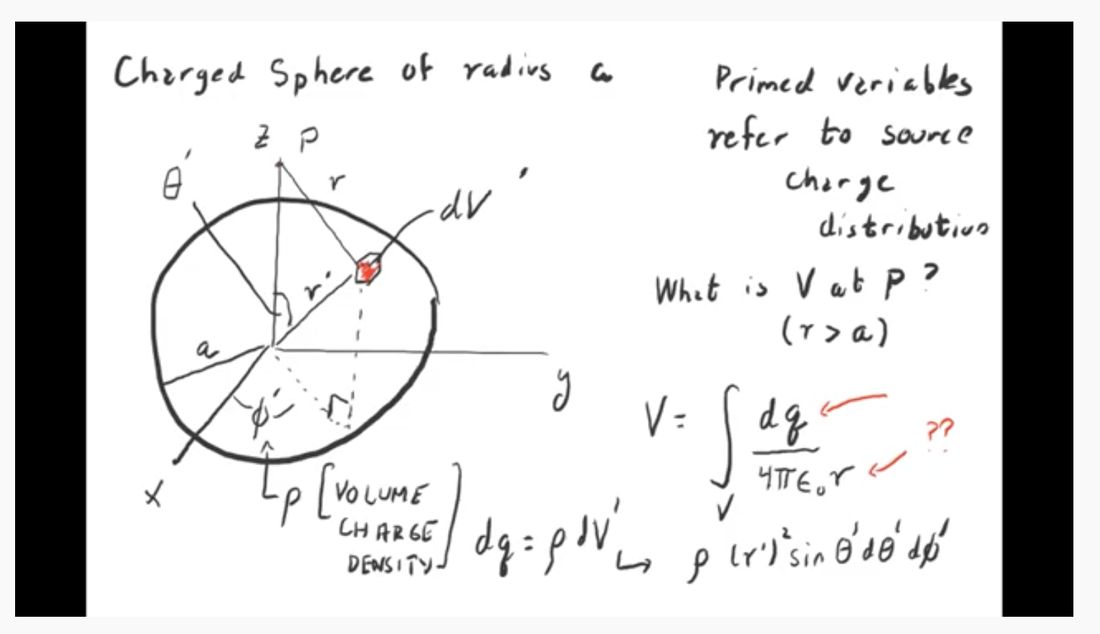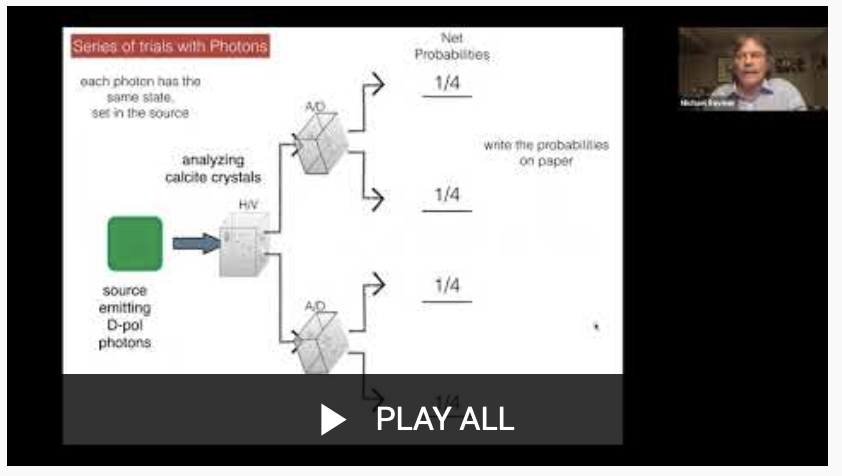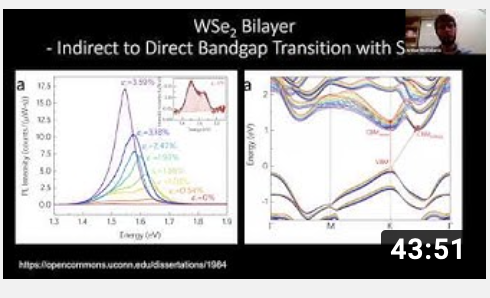Online Community: Courses and Workshops
2022 Courses
An Introduction to Linear Algebra Using Python: Part II
Dr. Steven L. Richardson
Howard University and Harvard University
Tuesdays 2:00 p.m. – 3:35 p.m. (Zoom Lecture)
Tuesdays 3:35 p.m. – 4:30 p.m. (Zoom Recitation Session)
This course is a continuation of the course “An Introduction to Linear Algebra Using Python’’(https://www.youtube.com/playlist?list=PL0CLfRiRFyPBIqzvtFUeG9vPQ-uVq4I-Q) and it covers the following topics: linear transformations, orthogonal matrices, the Gram-Schmidt process, QR-decomposition, eigendecomposition, symmetric matrices, singular vectors and values, the singular value decomposition problem, covariance matrices, and an introduction to principal component analysis. NumPy (a numerical library of Python) is a very convenient package which is used to code both vectors and matrices and we will use some simple applications of it throughout this course to reinforce the important concepts and examples of linear algebra.
Registration is required:
https://harvard.zoom.us/meeting/register/tJwrc-2vrD0uE9eeaXP1fqZn7NiFSgyXjILA
This course is supported by the National Science Foundation Science and Technology Center for Integrated Quantum Materials, NSF Grant No. DMR-1231319
click here for the course syllabus
Dr. Steven L. Richardson
Howard University and Harvard University
Tuesdays 2:00 p.m. – 3:35 p.m. (Zoom Lecture)
Tuesdays 3:35 p.m. – 4:30 p.m. (Zoom Recitation Session)
This course is a continuation of the course “An Introduction to Linear Algebra Using Python’’(https://www.youtube.com/playlist?list=PL0CLfRiRFyPBIqzvtFUeG9vPQ-uVq4I-Q) and it covers the following topics: linear transformations, orthogonal matrices, the Gram-Schmidt process, QR-decomposition, eigendecomposition, symmetric matrices, singular vectors and values, the singular value decomposition problem, covariance matrices, and an introduction to principal component analysis. NumPy (a numerical library of Python) is a very convenient package which is used to code both vectors and matrices and we will use some simple applications of it throughout this course to reinforce the important concepts and examples of linear algebra.
Registration is required:
https://harvard.zoom.us/meeting/register/tJwrc-2vrD0uE9eeaXP1fqZn7NiFSgyXjILA
This course is supported by the National Science Foundation Science and Technology Center for Integrated Quantum Materials, NSF Grant No. DMR-1231319
click here for the course syllabus
2021 Courses
An Introduction to Linear Algebra Using Python
Dr. Steven L. Richardson
Howard University and Harvard University
Tuesdays 2:00 p.m. – 3:35 p.m. (Zoom Lecture)
Tuesdays 3:35 p.m. – 4:30 p.m. (Zoom Recitation Session)
Linear algebra is an invaluable tool which serves as the gateway to a number of important subjects such as scientific computing, machine learning, quantum computing, and computer graphics. In this course we will cover the following topics: how to simultaneously solve systems of linear equations using determinants, Cramer’s rule, the method of cofactors and minors, Gauss-Jordan elimination, properties of matrices, the inverse of a matrix, using Gauss-Jordan elimination to find the inverse of a matrix, the rank of a matrix, review of vector analysis, expressing vectors as matrices, the linear dependence and independence of vectors, the basis of a vector, orthogonal and orthonormal vectors, the inner product of vectors, complex vectors and their inner products, linear transformations, special types of matrices (e.g. orthogonal, unitary, and Hermitian), the eigenvalue problem, matrix diagonalization, and the least squares approximation in linear algebra. NumPy (a numerical library of Python) is a very convenient package which is used to code both vectors and matrices and we will use some simple applications of it throughout this course to reinforce the important concepts and examples of linear algebra. We will assume throughout this course that the student is neither fluent in linear algebra nor Python.
This course is supported by the National Science Foundation Science and Technology Center for Integrated Quantum Materials, NSF Grant No. DMR-1231319
click here to watch the CIQM You Tube Channel recordings of this course
click here for the course syllabus
Problem Sets for Linear Algebra Course Lectures:
Problem Set 1 ~~ Solutions
Problem Set 2 ~~ Solutions
Problem Set 3 ~~ Solutions
Problem Set 4 ~~ Solutions
Problem Set 5 ~~ Solutions
Problem Set 6 ~~ Solutions
Problem Set 7 ~~ Solutions
Problem Set 8 ~~ Solutions
Problem Set 9 ~~ Solutions
Problem Set 10 ~~ Solutions
Problem Set 11 ~~ Solutions
Problem Set 12 ~~ Solutions
Problem Set 13 ~~ Solutions
Dr. Steven L. Richardson
Howard University and Harvard University
Tuesdays 2:00 p.m. – 3:35 p.m. (Zoom Lecture)
Tuesdays 3:35 p.m. – 4:30 p.m. (Zoom Recitation Session)
Linear algebra is an invaluable tool which serves as the gateway to a number of important subjects such as scientific computing, machine learning, quantum computing, and computer graphics. In this course we will cover the following topics: how to simultaneously solve systems of linear equations using determinants, Cramer’s rule, the method of cofactors and minors, Gauss-Jordan elimination, properties of matrices, the inverse of a matrix, using Gauss-Jordan elimination to find the inverse of a matrix, the rank of a matrix, review of vector analysis, expressing vectors as matrices, the linear dependence and independence of vectors, the basis of a vector, orthogonal and orthonormal vectors, the inner product of vectors, complex vectors and their inner products, linear transformations, special types of matrices (e.g. orthogonal, unitary, and Hermitian), the eigenvalue problem, matrix diagonalization, and the least squares approximation in linear algebra. NumPy (a numerical library of Python) is a very convenient package which is used to code both vectors and matrices and we will use some simple applications of it throughout this course to reinforce the important concepts and examples of linear algebra. We will assume throughout this course that the student is neither fluent in linear algebra nor Python.
This course is supported by the National Science Foundation Science and Technology Center for Integrated Quantum Materials, NSF Grant No. DMR-1231319
click here to watch the CIQM You Tube Channel recordings of this course
click here for the course syllabus
Problem Sets for Linear Algebra Course Lectures:
Problem Set 1 ~~ Solutions
Problem Set 2 ~~ Solutions
Problem Set 3 ~~ Solutions
Problem Set 4 ~~ Solutions
Problem Set 5 ~~ Solutions
Problem Set 6 ~~ Solutions
Problem Set 7 ~~ Solutions
Problem Set 8 ~~ Solutions
Problem Set 9 ~~ Solutions
Problem Set 10 ~~ Solutions
Problem Set 11 ~~ Solutions
Problem Set 12 ~~ Solutions
Problem Set 13 ~~ Solutions
2020 Courses
American Sign Language (ASL) Group Event
Every Other Friday, 1:00pm-1:45pm (9/18, 10/2, 10/16,10/30,11/13, 11/27)
Click here for Syllabus
Description: Join us for our first Virtual event on American Sign language (ASL), and the Deaf Culture. In these events, we will learn some basic ASL, strategies for working and interacting with D/HoHindividuals. We will also use these meetings for questions and answers on working with D/HoH interns/students.
Registration is free but required to get your unique zoom link. Register here: https://harvard.zoom.us/meeting/register/tJcpf-yoqDIqE9IXZcVLASjAE0JdfosMwByT
Every Other Friday, 1:00pm-1:45pm (9/18, 10/2, 10/16,10/30,11/13, 11/27)
Click here for Syllabus
Description: Join us for our first Virtual event on American Sign language (ASL), and the Deaf Culture. In these events, we will learn some basic ASL, strategies for working and interacting with D/HoHindividuals. We will also use these meetings for questions and answers on working with D/HoH interns/students.
Registration is free but required to get your unique zoom link. Register here: https://harvard.zoom.us/meeting/register/tJcpf-yoqDIqE9IXZcVLASjAE0JdfosMwByT
Ethics Workshop
Thursday June 18, 7:00 pm
URAF will be hosting their annual seminar on research integrity, featuring Dr. Logan McCarty (FAS Director of Science Education). The program will be held as a one-hour Zoom meeting on Thursday, June 18, beginning at 7:00pm Eastern Time. As in the past, they will be utilizing a case-study methodology, using polling as a tool for participants to think through particular scenarios such as the proper use of citations and attribution, figures, funding, and other important considerations that drive responsible conduct in research.
Thursday June 18, 7:00 pm
URAF will be hosting their annual seminar on research integrity, featuring Dr. Logan McCarty (FAS Director of Science Education). The program will be held as a one-hour Zoom meeting on Thursday, June 18, beginning at 7:00pm Eastern Time. As in the past, they will be utilizing a case-study methodology, using polling as a tool for participants to think through particular scenarios such as the proper use of citations and attribution, figures, funding, and other important considerations that drive responsible conduct in research.
Introduction to Python
by Atefeh Rahmani, Graduate Student UMass Dartmouth
June 16 - August
Tuesdays and Thursdays 3:00pm - 4:00pm
Click here for Syllabus
This is 11-week online programming class in python. This introductory course is designed for beginners. Python is an interpreted language with a simple syntax and its powerful set of libraries makes it one of the most used and in-demand programming languages. This general-purpose language is commonly used for data analysis, artificial intelligence, web development, and machine learning. In this course, you will learn the tools and techniques for data analysis. By completing this course, students will be able to understand Input/Output (I/O), statements, functions, and Python visualization libraries to design and solve a problem.
Click here to watch the recordings of this course on our CIQM You Tube Channel
by Atefeh Rahmani, Graduate Student UMass Dartmouth
June 16 - August
Tuesdays and Thursdays 3:00pm - 4:00pm
Click here for Syllabus
This is 11-week online programming class in python. This introductory course is designed for beginners. Python is an interpreted language with a simple syntax and its powerful set of libraries makes it one of the most used and in-demand programming languages. This general-purpose language is commonly used for data analysis, artificial intelligence, web development, and machine learning. In this course, you will learn the tools and techniques for data analysis. By completing this course, students will be able to understand Input/Output (I/O), statements, functions, and Python visualization libraries to design and solve a problem.
Click here to watch the recordings of this course on our CIQM You Tube Channel
|
Using Vector Calculus to Solve Problems in Electricity and Magnetism
by Steven L. Richardson, Professor Emeritus, Howard University June 19 - September 4 Fridays 2:00pm - 4:00pm Click here for Syllabus |
There is an old but true adage that, “Mathematics is too important to be left just to the mathematicians to do.” Clearly mathematics is a very powerful tool which touches every aspect of science and engineering. In particular, many undergraduate STEM majors find the subjects of multivariable calculus and vector calculus to be quite challenging. In this CIQM summer course we are going to use the beautiful subjects of electricity and magnetism to show how vector analysis and vector calculus actually work. We will cover the following topics: Coulomb’s law, the electric field, Gauss’s law, the electrostatic potential, electrostatic work and energy, capacitors, electric dipoles, and an introduction to magnetostatics. It will be assumed that the student has certainly seen these subjects in an introductory physics course, but we will revisit them in more detail through a series of clear lectures and problem sets.
Click here to watch the CIQM You Tube Channel recordings of this course
Problem Sets for Vector Calculus Course Lectures:
Problem Set I ~~ Solutions
Problem Set II ~~ Solutions
Problem Set III ~~ Solutions
Problem Set IV ~~ Solutions
Problem Set V ~~ Solutions
Problem Set VI ~~ Solutions
Problem Set VII ~~ Solutions
Problem Set VIII ~~ Solutions
Problem Set IX ~~ Solutions
Problem Set X ~~ Solutions
Problem Set XI ~~ Solutions
Problem Set XII ~~ Solutions
Click here to watch the CIQM You Tube Channel recordings of this course
Problem Sets for Vector Calculus Course Lectures:
Problem Set I ~~ Solutions
Problem Set II ~~ Solutions
Problem Set III ~~ Solutions
Problem Set IV ~~ Solutions
Problem Set V ~~ Solutions
Problem Set VI ~~ Solutions
Problem Set VII ~~ Solutions
Problem Set VIII ~~ Solutions
Problem Set IX ~~ Solutions
Problem Set X ~~ Solutions
Problem Set XI ~~ Solutions
Problem Set XII ~~ Solutions
Required Text: Quantum Mechanics for Everyone (preferably the paperback, or if necessary, the e-book) supplied by CIQM
Click here for Syllabus
This course explains the Nine Key Concepts of Quantum Information Science (QIS), as defined in the NSF report, and to apply some basic math tools for predicting outcomes of quantum experiments.
Click here to view the CIQM You Tube Channel and watch recordings of this course
Click here for Syllabus
This course explains the Nine Key Concepts of Quantum Information Science (QIS), as defined in the NSF report, and to apply some basic math tools for predicting outcomes of quantum experiments.
Click here to view the CIQM You Tube Channel and watch recordings of this course
|
Probing Quantum Materials with Light
Instructor: Arthur McClelland, Harvard Center for Nanoscale Systems June 24th - July 29th Wednesdays 1:00pm - 3:00pm Click here for syllabus |
This course will help give students a foundational knowledge of quantum materials and how they can be probed with light from an experimentalist’s viewpoint. No background knowledge is assumed.
Goals of course – be able to understand what a quantum material is and the optical spectroscopy techniques that are commonly used to probe quantum materials.
Time commitment of students: 12 hours of live online participation, plus time reading, plus time problem solving. (no formal exams or grading)
Click here to watch the CIQM You Tube Channel recordings of this course
Goals of course – be able to understand what a quantum material is and the optical spectroscopy techniques that are commonly used to probe quantum materials.
Time commitment of students: 12 hours of live online participation, plus time reading, plus time problem solving. (no formal exams or grading)
Click here to watch the CIQM You Tube Channel recordings of this course









